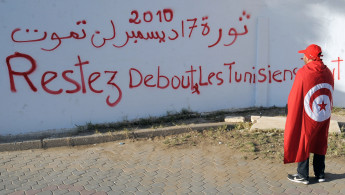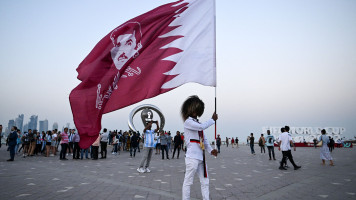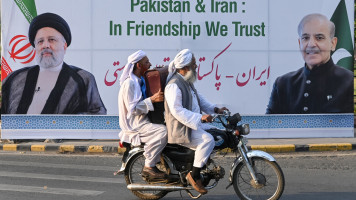Secular-Islamist rift patched up in Tunisia
A bitter feud between two of Tunisia's leading parties appears to have been resolved, according to the country's interim president.
Moncef al-Marzouqi, leader of the centre-left Congress of the Republic party, and the Islamist Ennahdha movement, the biggest political party in the country, defied expectations by keeping a united front after the revolution in 2011.
A coalition government between the two - along with the Democratic Forum for Labour and Liberties - lasted through the democratic changes that gripped the nation, but ended in July 2013 when opposition leader Mohammed Brahmi was assassinated. Many attributed the murder to the Islamists - believing that Ennahdha had been "too soft on terrorism".
As the troika coalition government fell apart, a series of harsh statements were shot between rival supporters of the two leading groups. The rift in the alliance threatened to develop into a wider divide in the country as a whole, and analysts were concerned that opening civic wounds only recently healed could spell disaster for the country.
Secularism v Islamism
With parliamentary and presidential elections taking place in Tunisia this month, many in the country have been fearful that the North African country could experience the sort of turmoil other post-Arab Spring countries have been through, particularly with a growing number of Tunisians reportedly turning to the jihadi ideology of the Islamic State group (IS, formerly known as ISIS) and al-Qaeda.
Cooling tensions, however, Marzouqi spoke about Ennahdha leader Rashid al-Ghannushi, confirming his "strong confidence in his wisdom, patriotism and honesty" and 30 years of friendship and shared struggles the two leaders had enjoyed. He added that his relationship with the Islamist leader rose above the most recent dispute.
Secularist Marzouqi also praised the Ennahdha grassroots movement, saying that Ghannushi had won the confidence of these members, and also secularists due to his commitment to the values of human rights and freedom.
Marzouqi went as far as proposing the Ennahda party leader take on a presidential role.
"He is the only one who could unite the country while every other party wants to divide us," he said. Despite his strong praise for the Islamist party, Marzouqi denied that he was "courting" Ennahdha or putting himself forward as a possible "consensus candidate" during the presidential elections due to be held in November.
| Despite his strong praise for the Islamist party, Marzouqi denied that he was 'courting' Ennahdha |
Party unity
Marzouqi has recently made some internal adjustments to his party. The results were prompt - Adnan Mansar, Marzouqi's campaign manager, talked about the tongue-lashing he received alonside Ennahdha campaign manager Lotfi Zeitoun - and denied a rift between the two parties, or any other groups who were part of the overthrow of former dictator Zine al-Abidine Ben Ali.
Imed Daimi, secretary general of the Congress party, announced that his party's closeness with Ennahdha was "a strategic alliance aiming to save the transitional path [to democracy], and not to seize power and high positions".
He also confirmed that the Congress party was committed to the alliance with Ennahdha despite what he called "internal and external pressures".
Big stakes
| It seems that Ennahda is not prepared to enter into disputes with any political party prior to the legislative elections |
Ennahdha appears to be avoiding conflicts with other parties ahead of the legislative elections, due to be held on Sunday. Party officials predict they will win more than 40 percent of the votes.
The attitude would seem to be a joint bid to avoid disrupting their own campaign work, while also strengthening calls for national unity - across the political spectrum - to ensure the ongoing security and stability of Tunisia.
On a more pragmatic note, Ennahdha also knows that it will still need allies once the polls close. It remains difficult to accurately predict the results will pan out, and it is even more difficult to predict how this historical event will impact on the future of Tunisia.
This article is an edited translation from our Arabic edition.
Opinions expressed in this article remain those of the original author and do not necessarily reflect the opinions of Al Araby Al Jadeed, its editorial board or staff.



